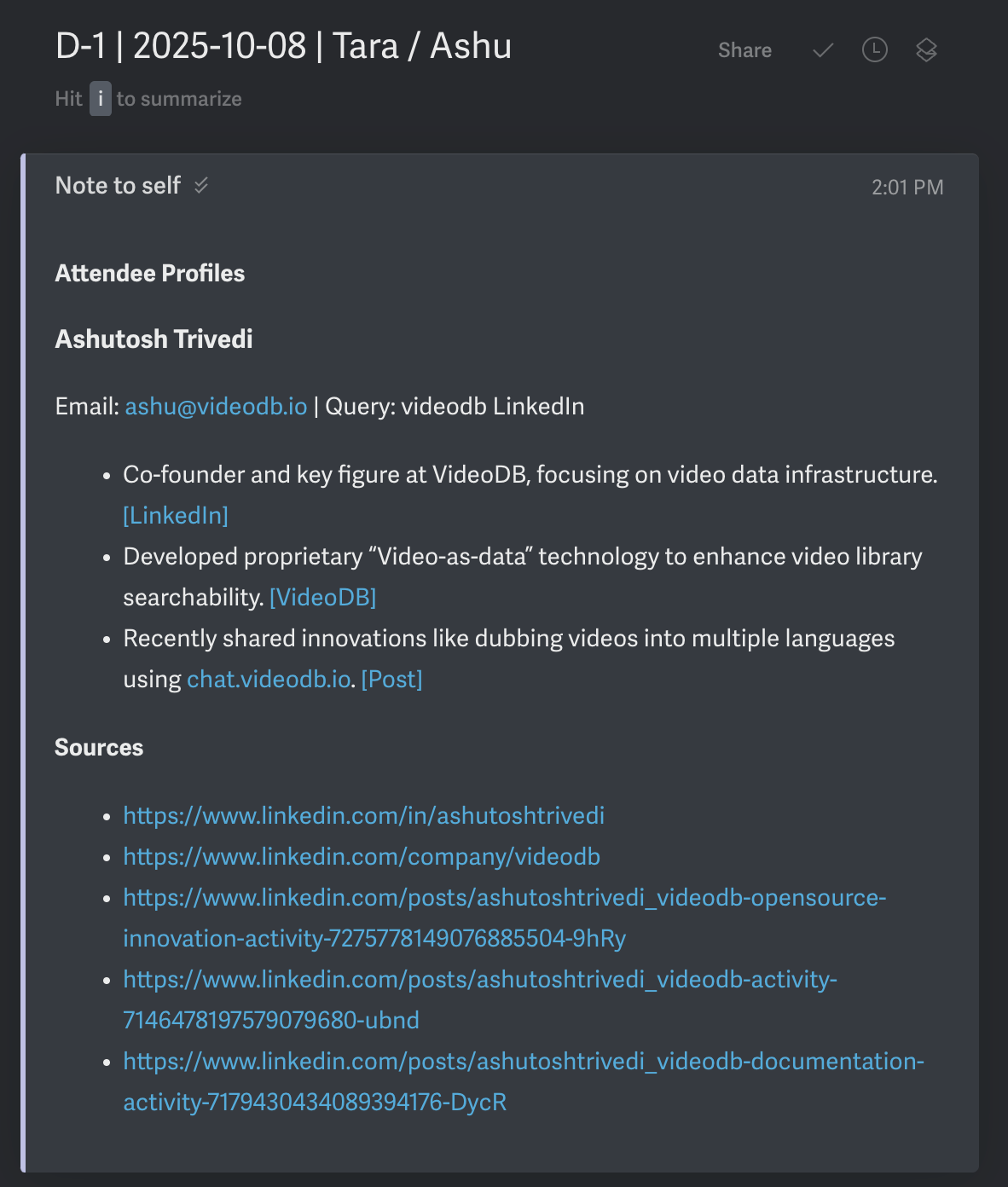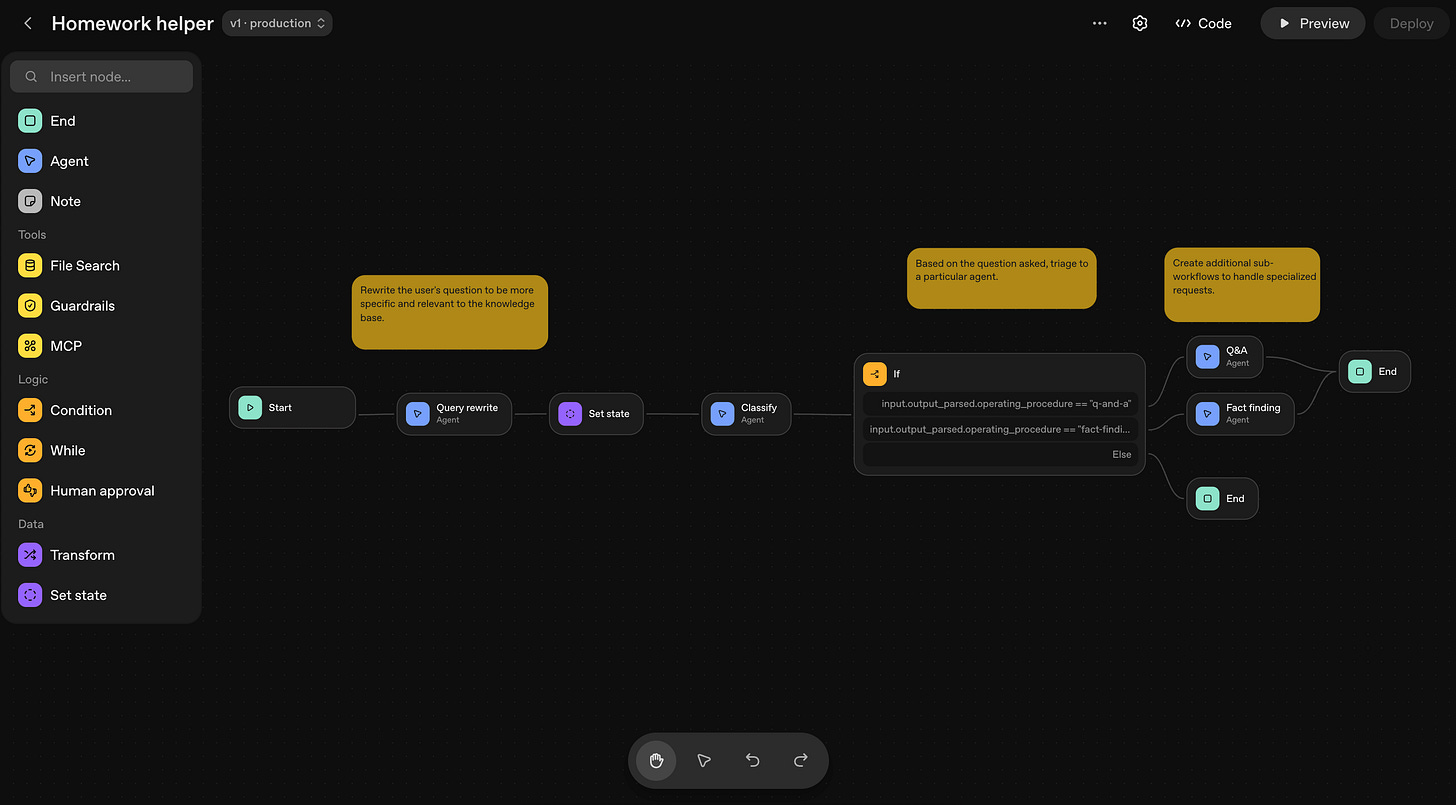When Intelligence Eats Software
OpenAI's Dev Day was a big bid for developer mindshare. It's coming for the browser, the app store, and the way we build software itself.
OpenAI Dev Day had big builder energy. It was an electrifying bid for developer mindshare and the energy was palpable in the air. This was OpenAI demonstrating how Intelligence becomes infrastructure.
The big takeaway for me: Intelligence as Operating System (a thesis I wrote about earlier this year) is no longer an idea. It’s here. And it’s coming for the browser, the app store, and the way we build software itself.
The core announcements from Dev Day were that the two pieces of the puzzle now slot together: Agents SDK and Apps SDK. The nomenclature is slightly confusing, but the easiest way to think about them:
Agents SDK / Agents Kit powers the backend (how models reason, call APIs, connect to data, and orchestrate workflows)
Apps SDK powers the frontend (you can now build custom interfaces inside ChatGPT and wire them directly into external services)
Agentic commerce protocol with Stripe to power the monetization layer
To test these out, I spun up a meeting brief agent using Agents SDK via Codex CLI (also did a successful test drive with Claude Code) that connected to my Google Calendar, scanned attendee bios, and sent me a one-page briefing before every call.
When you combine that development pace with the new visual Agent Builder for more complex automations (think Zapier or n8n, but model-native) and the Codex CLI (which lets an agent behave like a command-line operator), you start to see the outlines of a whole new computing stack.
Here’s what I keep turning over in my mind:
If the browser was the default interface of the web era, ChatGPT or something like it could become the interface of the intelligence era. The way we discover and use software might fundamentally change. Why type queries into a search engine or jump between 10 different apps if everything you need - from booking a flight to running internal tools - lives inside one conversational layer?
And if that’s true, then the downstream consequences are enormous.
Workflow Software Will Collapse Into the OS
Automation platforms might not make sense in a world where orchestration is built directly into the OS. Workflow software becomes a feature, not a standalone product.
The cottage industry of no-code frontends and “vibe coding” tools may not survive if automation and workflow tools will be native.
Traditional cloud and app infrastructure will shrink
Even infrastructure starts to look different. Why bother spinning up your own backend when databases can be provisioned and queried directly through the agent environment? Compute and storage are utilities, and commoditized.
It’s not hard to imagine this new layer swallowing pieces of the app economy too. Spotify becomes a music access token with preferences attached. Notion becomes structured storage with a permissions layer. We’ll still have standalone applications, but many will dissolve into “agent apps”, lighter, more adaptive, and woven directly into the fabric of the intelligence layer.
That’s the real endgame: the experience is the platform.
If this shift plays out the way I suspect, most SaaS products will shrink to capabilities. The winners of the next decade will build invisible layers that surface exactly when needed and disappear just as quickly. The app isn’t the product anymore. The interface is.
It’s still early. The first wave of apps will probably be trivial (anyone else remember the beer-drinking iOS app?) But so were the first websites. So were the first iPhone apps.
Some of the demos showcased on Dev Day were illuminating. Like the collab with Mattel where a designer turned a pencil sketch of a Hot Wheels toy into a Sora-created concept video. Or the live demo where a developer programmed the lights and cameras with Agents SDK on stage in minutes. Primitive, but revealing.
What matters isn’t what exists today. It’s the gravitational pull this shift sets in motion. Once you can reason, act, and interact all from a single interface, the browser stops feeling essential. Software stops feeling like something you “open.”
Intelligence becomes the thing that supports an entire ecosystem around it.






